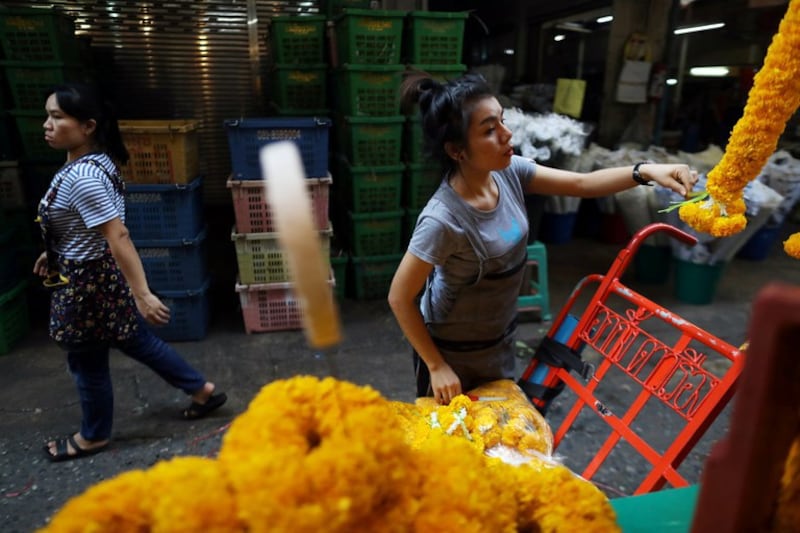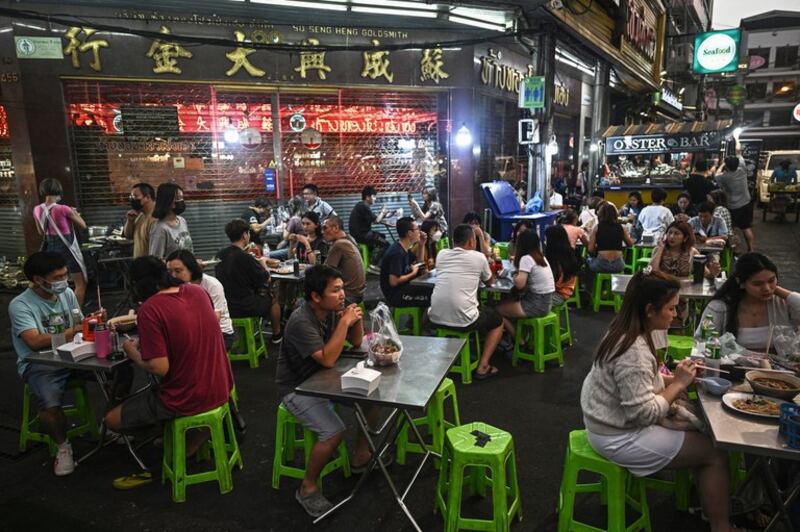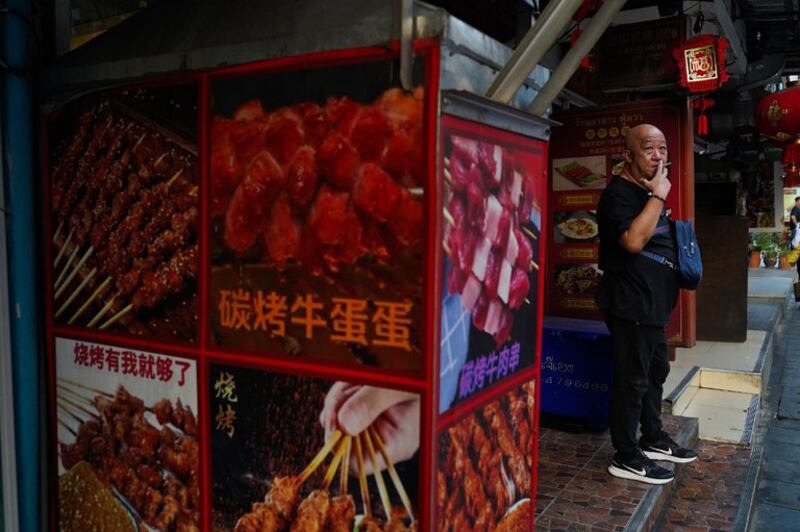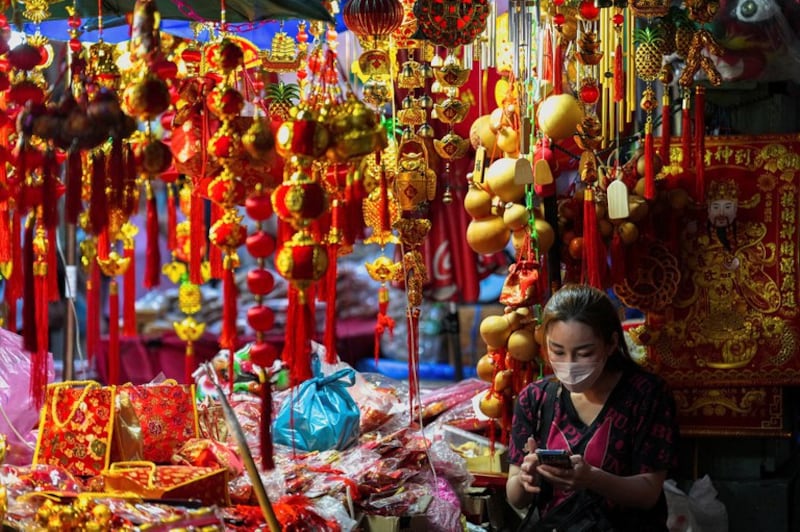From restaurants to flower markets, new businesses with links to Chinese investors are popping up in Bangkok’s Chinatown districts, chewing into profits Thai merchants hoped to see with the post-pandemic return of tourists from China, vendors say.
When China reopened its borders to outbound international travel in early January ahead of the arrival of the Lunar New Year, Thai entrepreneurs and shopkeepers expected that a rush of Chinese tourists would revive their businesses ravaged by the COVID-19 outbreak.
Lately, however, investors from mainland China have intervened and pounced on the outbound tourist market. They have been pouring cash into Bangkok and going around stricter investment rules for foreigners by persuading Thais to act as nominees on applications for business licenses, locals complain.
They say shops and eateries backed by Chinese entrepreneurs have sprouted up as a result in Yaowarat and Huai Khwang districts, home to the two Chinatowns in Thailand’s capital.
New hotpot restaurants and supermarkets, which sell everything from Ma La, a mouth-burning sauce made of Sichuan peppercorns and chili, to instant noodles imported from China, are squeezing local businesses by driving up commercial rental rates by four times higher, Chinatown vendors and others say.
A similar trend is happening at Thailand’s largest wholesale flower market along the Chao Phraya River, the main waterway in Bangkok.
“Local businesses can’t afford to pay the rentals that start from 200,000 baht per month [U.S. $5,860]. In the past, it was around 50,000 to 100,000 baht a month only,” a local man, who has run a gift shop in Yaowarat for seven decades, told BenarNews. He requested anonymity for fear his comments could turn off potential customers.
“It’s difficult for local people to operate their businesses due to the lack of funds.”

The tourism industry is an engine of Thailand’s economy but relies heavily on dollars spent by visitors from the Chinese mainland. Thailand is among the world’s most popular destinations for Chinese tourists.
In 2019, the year before the pandemic struck, more than a quarter of the nearly 40 million tourists were from China, according to Thai tourism officials. That year alone, Chinese tourists spent close to 522 billion baht ($15.3 billion). In 2023, the Thai Tourism Authority predicts, as many as 8 million Chinese tourists out of 30 million foreigners will visit Thailand.
Thais complain
Known as Chinatown 2, Huai Khwang in recent months has seen more than 60 new hotpot restaurants with links to Chinese nationals set up shop along Pracharat Bamphen Street, according to Prapret Hankijjakul, a member of the Bangkok Metropolitan Council who represents the district.
A survey conducted by his office found that about 3,000 Chinese nationals were living in the neighborhood.
“They return to China and come back to Thailand again with business funds. They ask Thais to join their business because it’s easier to use Thai names to operate it,” Prapret told BenarNews.
“In Huai Khwang, they don’t have a problem with commercial documents because the district administration encourages all business operators to comply with the law,” he said. “However, it’s unclear whether everybody has work permits.”

A Chinese hotpot restaurant operator in Huai Khwang who identified himself only as Wang, said he did not know how to obtain a work permit even though he opened the business with his Thai partners in early February. He declined to give his full name because he lacks a permit.
Wang, who has a Thai girlfriend, in fact has lived in Thailand for more than 14 years. He has a 46% stake in the new hotpot joint venture with his Thai partners.
“Ma La is a hotpot formula originated in China. I want all customers to taste the authentic Chinese food. It’s more like an alternative option for Thais. I don’t intend to compete with Thais,” Wang, 40, said.
But Lek, a 52-year-old Thai owner of a grocery store who grew up in Huai Khwang, is wary about the influx of Chinese money.
He recalled that he bristled when Thai realtors brought potential Chinese buyers to see his house, a prime business location, and when they asked how much money he wanted for it.
“I insisted I would never sell it to those Chinese businessmen, for sure,” Lek said. “There were so many times that the Thai agents took Chinese to my house, asking if I wanted to sell it. They thought it’s worth the business and they wanted it.”
On the other hand, he said, the injection of money into the district by Chinese investors promises to juvenate the area and make it more lively, as well as create more revenue opportunities for local people.
Realtors in the Chinatown districts declined to be interviewed for this report.

Authorities investigate complaints
Thailand’s foreign business law stipulates that restaurants and businesses selling agricultural products are reserved almost exclusively for Thais. If foreigners want to invest in such businesses, they have to hold a minority stake in a joint venture with Thai partners. However, Chinese investors lately have been circumventing the rules by using Thai “nominees” to hold a majority stake on their behalf and providing their Thai partners with the investment money.
Earlier this year, some Thais filed a complaint to local authorities about the influx of Chinese funds, leading to investigations and a few arrests.
“As a result, immigration police, tourist police, special branch police, work with local police and relevant agencies, including the labor ministry and commerce ministry, to inspect the business and enforce the rule of law,” said Police Maj. Gen. Achayon Kraithong, spokesman for the Royal Thai Police.
In late January, Achayon said, officers from the Immigration Bureau searched Chowchan O-cha, a Chinese restaurant in Huai Khwang, and arrested three Chinese nationals who allegedly worked there without proper papers.
Officers took them and the owner into custody. The Chinese nationals were charged with working in Thailand without permits and were to be deported to China after their trial, officials said.
In addition, the Ministry of Commerce said recently that it was investigating some 200 businesses and companies in Yaowarat and Huai Khwang on suspicion of having unauthorized links to Chinese investors.
‘Thai flowers are more beautiful’
Apart from Bangkok’s Chinatowns, vendors at Pak Khlong Talat, the wholesale flower market on the Chao Phraya River, say they are also being pinched by negative aspects from money from Chinese investors coming in.
Thanks to a new high-speed railway, which runs from China to the Laos border, flowers, fruits and vegetables from China are flooding Thai fresh markets at competitive prices, a local flower vendor said.

A florist nicknamed “Namwaan” said she saw dozens of shops owned by Chinese being established in the past months at the market.
“Flowers from China flood Thailand since China reopened the borders. Thai flowers are more beautiful but customers prefer imported flowers due to the size. They are bigger and can stay longer at the similar price. It’s very difficult for Thais to stay strong,” Namwaan told BenarNews.
BenarNews, an online news service affiliated with Radio Free Asia (RFA), produced this report.
